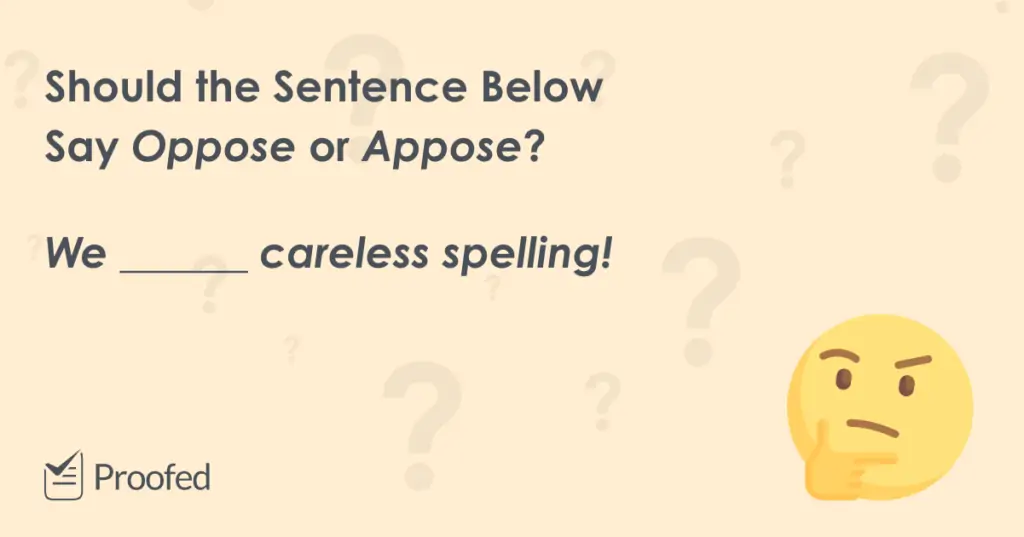Ideally, all words would be clearly distinct in spelling and pronunciation. In practice, though, there are many homophones in English, including “oppose” and “appose.” And to avoid errors in your written work, you have to know what each term means! Find out more below.
Oppose (Act Against or Disapprove)
The most common meaning of the verb “oppose” is “disapprove of”:
I’ve been opposed to homework since school.
It can also involve more direct opposition, such as acting against something:
She dedicated all her time to opposing the regime.
Physically, “oppose” means “place opposite” something:
He positioned the chair so it opposed the doorway.
Finally, “oppose” can also be used to describe two things in opposition to one another, particularly with the phrase “as opposed to”:
Find this useful?
Subscribe to our newsletter and get writing tips from our editors straight to your inbox.
I value hard work as opposed to innate brilliance.
In all cases, though, “oppose” refers to being in opposition to something.
Appose (Place Side by Side)
“Appose” is also a verb, but it means “place side by side”:
I sat apposed to my mother on the sofa.
In addition, the word “appose” is much rarer than “oppose.” This means that you will usually need “oppose” instead, but make sure to check if you’re unsure.
Summary: Oppose or Appose?
As mentioned, “appose” is a rare word and mostly appears in very old or very technical writing. Thus, ninety percent of the time, you’ll need the word “oppose.” Furthermore, there’s a big difference in what these verbs mean:
- Oppose means “disapprove,” “act against,” or “place opposite.”
- Appose means “place side by side” or “juxtapose.”
The key is that “oppose” is related to “opposite,” so it’s used when two things are physically opposite or in opposition to one another. And if you need any more help with the word choice or spelling in a document, you can always submit it to our expert proofreading service.



